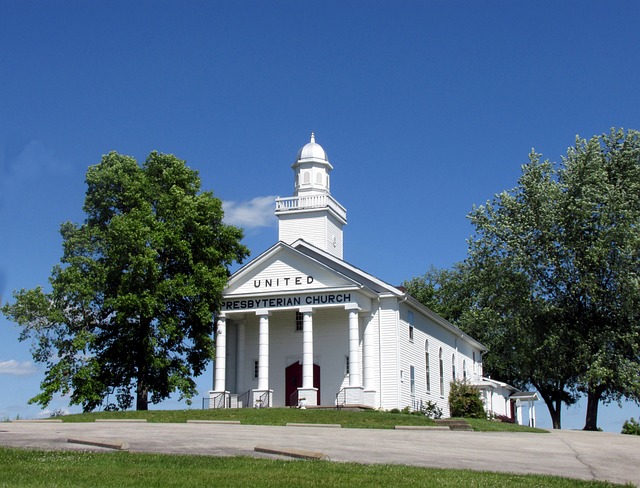The primary belief of Presbyterianism is centered around the sovereignty of God, emphasizing the authority of God in all aspects of life and faith.
Table of Contents
The Doctrine of Predestination in Presbyterianism
What is the Presbyterian primary belief? Well, one of the key doctrines that defines Presbyterianism is the belief in predestination. This doctrine, also known as the doctrine of election, holds that God has chosen certain individuals for salvation before the foundation of the world. It is a concept that has sparked much debate and discussion throughout history, but it remains a central tenet of Presbyterian theology.
So, what exactly does predestination mean in the context of Presbyterianism? It means that God, in His infinite wisdom, has predetermined who will be saved and who will not. This divine choice is not based on anything that humans have done or will do, but solely on God’s sovereign will. In other words, salvation is not earned or achieved through good works or personal merit, but is entirely a gift from God.
This belief in predestination can be traced back to the teachings of John Calvin, one of the key figures in the Protestant Reformation. Calvin emphasized the sovereignty of God and the total depravity of humanity, asserting that humans are incapable of saving themselves and are completely dependent on God’s grace for salvation. According to Calvin, God’s choice to save certain individuals is an act of divine mercy and love, not a reflection of their own worthiness.
Now, you might be wondering how predestination fits with the idea of free will. After all, if God has already determined who will be saved, do we really have any choice in the matter? This is a question that has puzzled theologians for centuries. While Presbyterianism affirms the reality of human free will, it also recognizes that our will is in bondage to sin and incapable of choosing God on its own. It is only through the work of the Holy Spirit that we are able to respond to God’s call and accept His gift of salvation.
It’s important to note that predestination does not mean that God has predetermined every aspect of our lives. Presbyterians believe in the concept of secondary causes, which means that God works through natural processes and human agency to accomplish His purposes. We are still responsible for our actions and choices, even though God’s ultimate plan is at work behind the scenes.
While predestination is a distinctive belief of Presbyterianism, it is not the only belief that defines this tradition. Presbyterians also hold to the authority of Scripture, the importance of the sacraments, and the priesthood of all believers. These beliefs, along with predestination, shape the way Presbyterians understand and live out their faith.
In conclusion, the primary belief of Presbyterianism is the doctrine of predestination. This belief holds that God has chosen certain individuals for salvation before the foundation of the world. It is a concept that emphasizes God’s sovereignty, human depravity, and the need for God’s grace. While predestination can be a challenging doctrine to understand, it is a central tenet of Presbyterian theology and shapes the way Presbyterians understand their relationship with God and the world around them.
The Authority of Scripture in Presbyterian Theology

Presbyterianism is a branch of Protestant Christianity that traces its roots back to the Reformation in the 16th century. With its strong emphasis on the authority of Scripture, Presbyterian theology holds a primary belief that the Bible is the ultimate source of truth and guidance for the Christian faith. This article will explore the significance of the authority of Scripture in Presbyterian theology and how it shapes the beliefs and practices of Presbyterian churches.
At the heart of Presbyterianism is the belief that the Bible is the inspired and infallible Word of God. Presbyterians view the Scriptures as God’s self-revelation to humanity, containing everything necessary for salvation and the Christian life. This belief in the authority of Scripture sets the foundation for all other theological doctrines and practices within Presbyterianism.
Presbyterians believe that the Bible is not just a collection of ancient writings, but a living and relevant text that speaks to believers today. They hold that the Scriptures are not to be interpreted in isolation but within the context of the community of faith. This communal interpretation is guided by the Holy Spirit, who illuminates the meaning of the text and helps believers apply its teachings to their lives.
The authority of Scripture in Presbyterian theology is not limited to matters of faith and doctrine but extends to all areas of life. Presbyterians believe that the Bible provides guidance for ethical decision-making, social justice issues, and personal conduct. They see the Scriptures as a moral compass that directs believers to live in accordance with God’s will and purposes.
Presbyterian churches place a strong emphasis on the preaching and teaching of the Word. The sermon is considered a central part of worship, where the Scriptures are expounded and applied to the lives of the congregation. The role of the pastor is crucial in Presbyterian churches, as they are responsible for faithfully interpreting and proclaiming the Word of God.
The authority of Scripture also shapes the governance structure of Presbyterian churches. Presbyterianism is characterized by a representative form of church government, where decisions are made collectively by elders. These elders, known as presbyters, are elected by the congregation and are responsible for the spiritual oversight and leadership of the church. They are guided by the Scriptures in their decision-making processes, ensuring that the church remains faithful to its primary belief in the authority of Scripture.
Presbyterians also value the study and interpretation of the Scriptures at an individual level. They encourage believers to engage in personal Bible study, prayer, and reflection, seeking to deepen their understanding of God’s Word and its application to their lives. This personal engagement with the Scriptures is seen as a means of spiritual growth and transformation.
In conclusion, the authority of Scripture is a primary belief in Presbyterian theology. Presbyterians hold that the Bible is the inspired and infallible Word of God, providing guidance for faith, doctrine, ethics, and all areas of life. The Scriptures are interpreted within the context of the community of faith, guided by the Holy Spirit. The preaching and teaching of the Word are central to Presbyterian worship, and the authority of Scripture shapes the governance structure of Presbyterian churches. Additionally, Presbyterians value personal engagement with the Scriptures, seeking to deepen their understanding and application of God’s Word. Through their commitment to the authority of Scripture, Presbyterians strive to live faithfully and obediently in accordance with God’s will.
The Role of Elders in the Presbyterian Church
The Presbyterian Church is a Protestant Christian denomination that has its roots in the Reformed tradition. With a rich history dating back to the 16th century, the Presbyterian Church has developed a unique set of beliefs and practices that set it apart from other Christian denominations. One of the primary beliefs of the Presbyterian Church is the role of elders in the church.
In the Presbyterian Church, elders play a crucial role in the governance and leadership of the church. They are elected by the congregation and are responsible for making important decisions regarding the direction and mission of the church. Elders are seen as spiritual leaders and are tasked with shepherding the congregation, providing guidance and support to the members of the church.
The role of elders in the Presbyterian Church is based on the biblical model of leadership found in the New Testament. In the book of Acts, we see the early church being led by a group of elders who were responsible for the spiritual well-being of the community. This model of leadership is still followed in the Presbyterian Church today.
Elders in the Presbyterian Church are not just figureheads or administrators. They are expected to be actively involved in the life of the church and to provide spiritual guidance to the congregation. This includes leading worship services, teaching and preaching, and providing pastoral care to the members of the church. Elders are also responsible for overseeing the sacraments, such as baptism and communion, and ensuring that they are administered in accordance with Presbyterian beliefs and practices.
One of the unique aspects of the Presbyterian Church is the concept of “ruling elders” and “teaching elders.” Ruling elders are laypeople who are elected by the congregation and serve alongside the teaching elders, who are ordained ministers. Both ruling elders and teaching elders have equal authority and responsibility in the governance of the church. This shared leadership model ensures that the voices and perspectives of both clergy and laity are represented in the decision-making process.
The role of elders in the Presbyterian Church is not limited to the internal affairs of the church. Elders are also called to be active participants in the wider community and to be advocates for justice and peace. This includes engaging in social justice issues, promoting equality and inclusivity, and working towards the betterment of society as a whole.
In conclusion, the role of elders in the Presbyterian Church is a vital one. They are spiritual leaders who are responsible for the governance and leadership of the church. Elders are elected by the congregation and are tasked with providing guidance and support to the members of the church. They are actively involved in the life of the church and are responsible for leading worship services, teaching and preaching, and providing pastoral care. The concept of ruling elders and teaching elders ensures a shared leadership model that values the voices and perspectives of both clergy and laity. Elders in the Presbyterian Church are also called to be advocates for justice and peace in the wider community.
The Importance of Worship and Sacraments in Presbyterian Faith
Presbyterianism is a branch of Christianity that has its roots in the Protestant Reformation. It is a faith that places great importance on worship and sacraments. In fact, worship and sacraments are considered essential aspects of the Presbyterian faith. This article will explore the significance of worship and sacraments in the Presbyterian tradition.
Worship is a central part of the Presbyterian faith. It is seen as a way to honor and connect with God. Presbyterians believe that worship should be reverent, but also joyful and uplifting. It is a time for the congregation to come together as a community and express their love and devotion to God.
One of the key elements of Presbyterian worship is the preaching of the Word. The sermon is considered to be the centerpiece of the worship service. It is through the preaching of the Word that Presbyterians believe they can gain a deeper understanding of God’s will and purpose for their lives. The sermon is often based on a passage from the Bible and is intended to provide guidance and inspiration to the congregation.
Another important aspect of Presbyterian worship is the singing of hymns. Hymns are seen as a way to express praise and adoration to God. They are often chosen for their theological depth and their ability to inspire and uplift the congregation. Hymns are typically accompanied by organ music, which adds to the sense of reverence and awe in the worship service.
In addition to worship, sacraments are also a vital part of the Presbyterian faith. Sacraments are seen as visible signs of God’s grace and presence. There are two sacraments that are recognized in the Presbyterian tradition: baptism and the Lord’s Supper.
Baptism is seen as a way to initiate individuals into the Christian faith. It is a symbolic act that represents the washing away of sin and the new life that comes through faith in Jesus Christ. In the Presbyterian tradition, both infants and adults can be baptized. It is seen as a way for the community to welcome new members into the family of God.
The Lord’s Supper, also known as communion, is another important sacrament in the Presbyterian faith. It is a time for the congregation to remember and celebrate the sacrifice of Jesus Christ. During the Lord’s Supper, bread and wine (or grape juice) are shared among the congregation as a way to symbolize the body and blood of Christ. It is a solemn and sacred act that is meant to deepen the believer’s relationship with God.
In conclusion, worship and sacraments are of utmost importance in the Presbyterian faith. Worship is seen as a way to honor and connect with God, while sacraments are seen as visible signs of God’s grace and presence. Through worship and sacraments, Presbyterians seek to deepen their relationship with God and live out their faith in a meaningful way. Whether it is through the preaching of the Word, the singing of hymns, or the participation in sacraments, worship is a central part of the Presbyterian tradition.
Conclusion
The primary belief of Presbyterianism is the sovereignty of God, which emphasizes that God is the supreme authority in all matters of faith and life.


